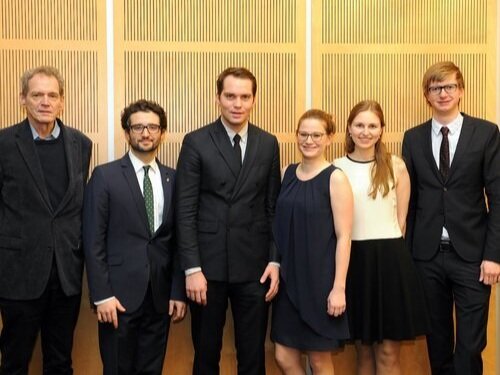The Obermayer Awards: A Brief History
Remembering history, preserving culture, combating prejudice
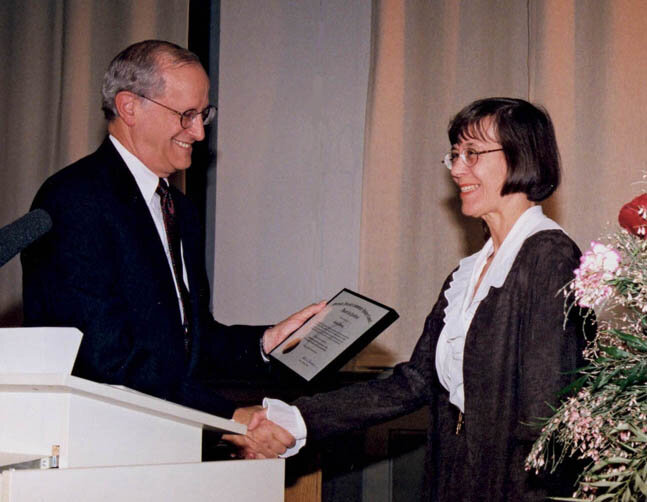
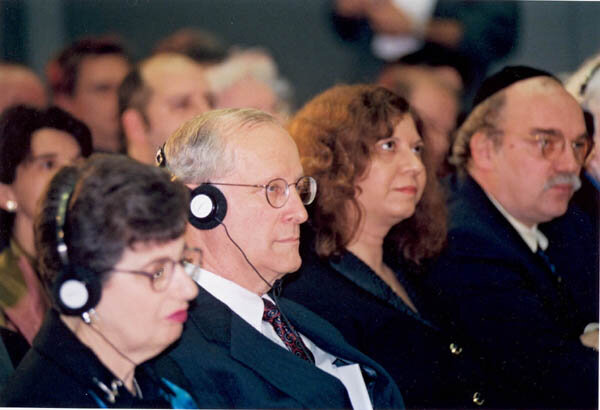
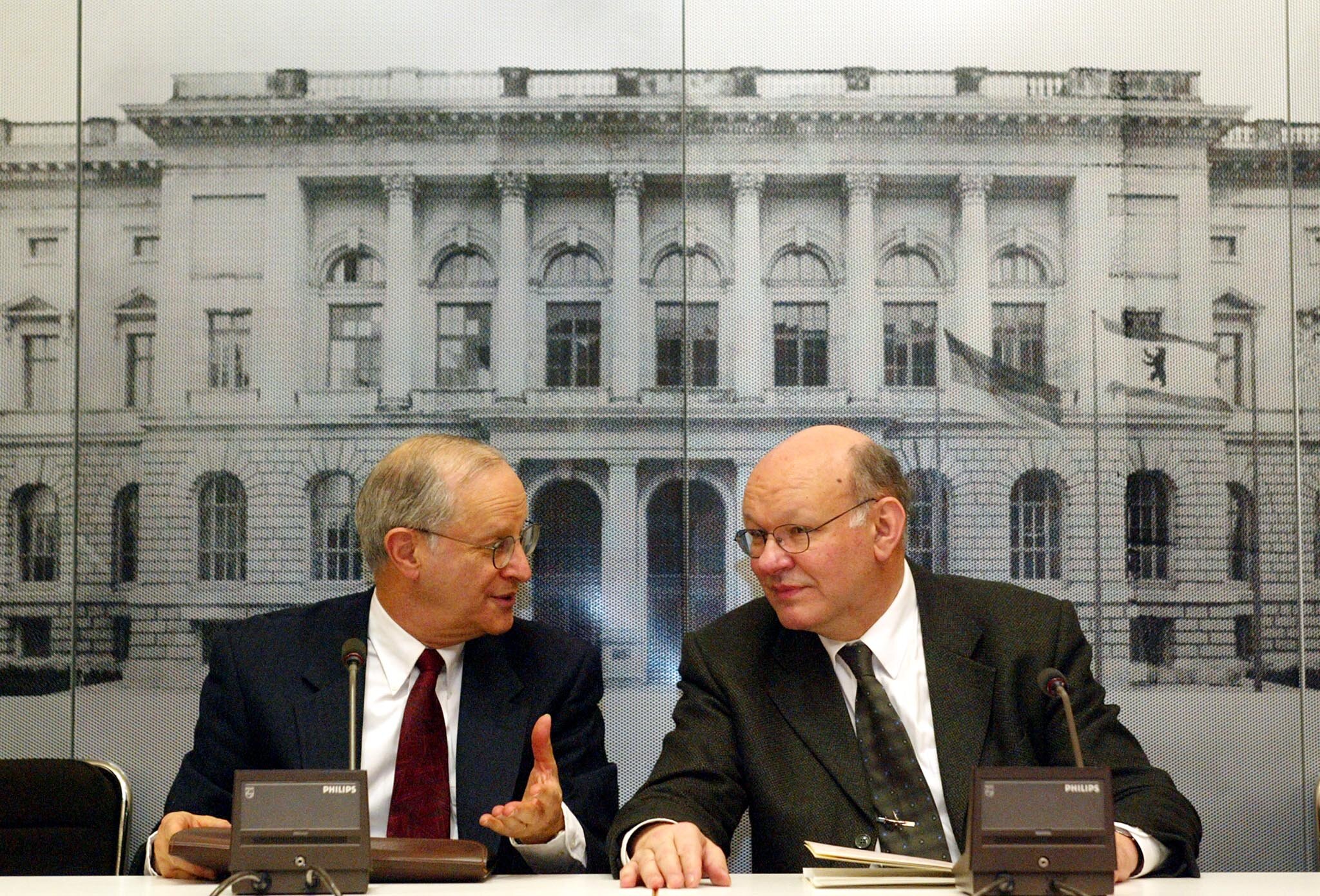
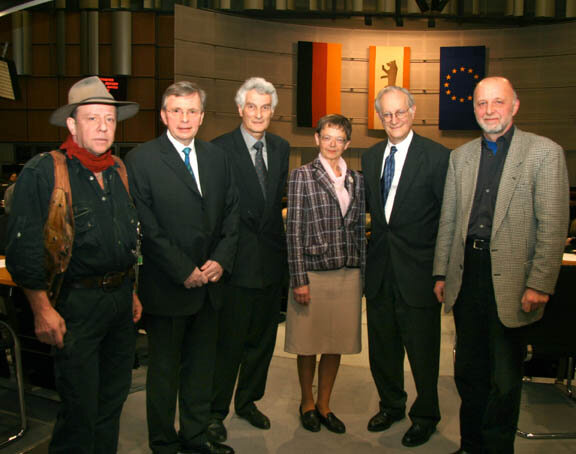
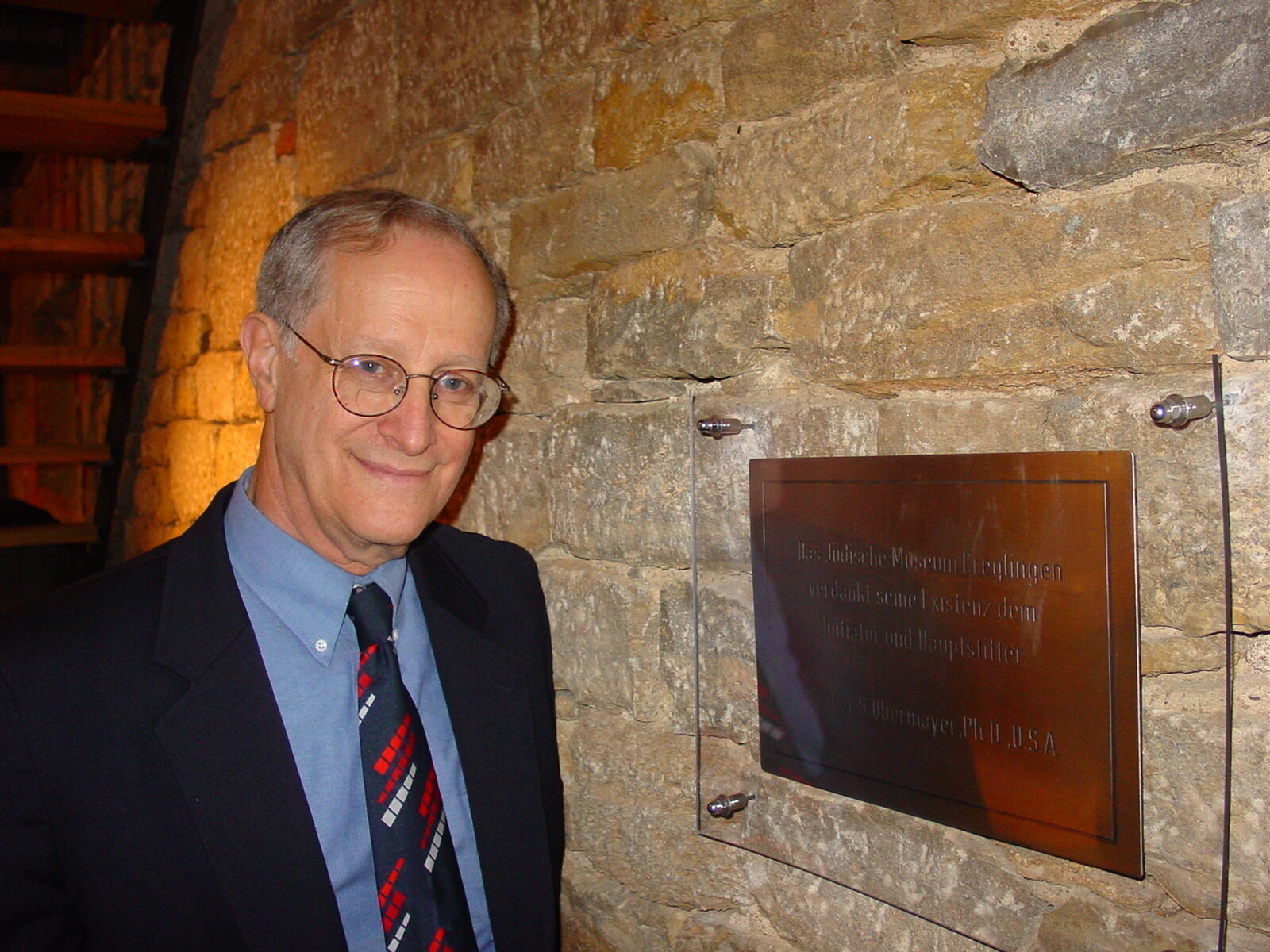
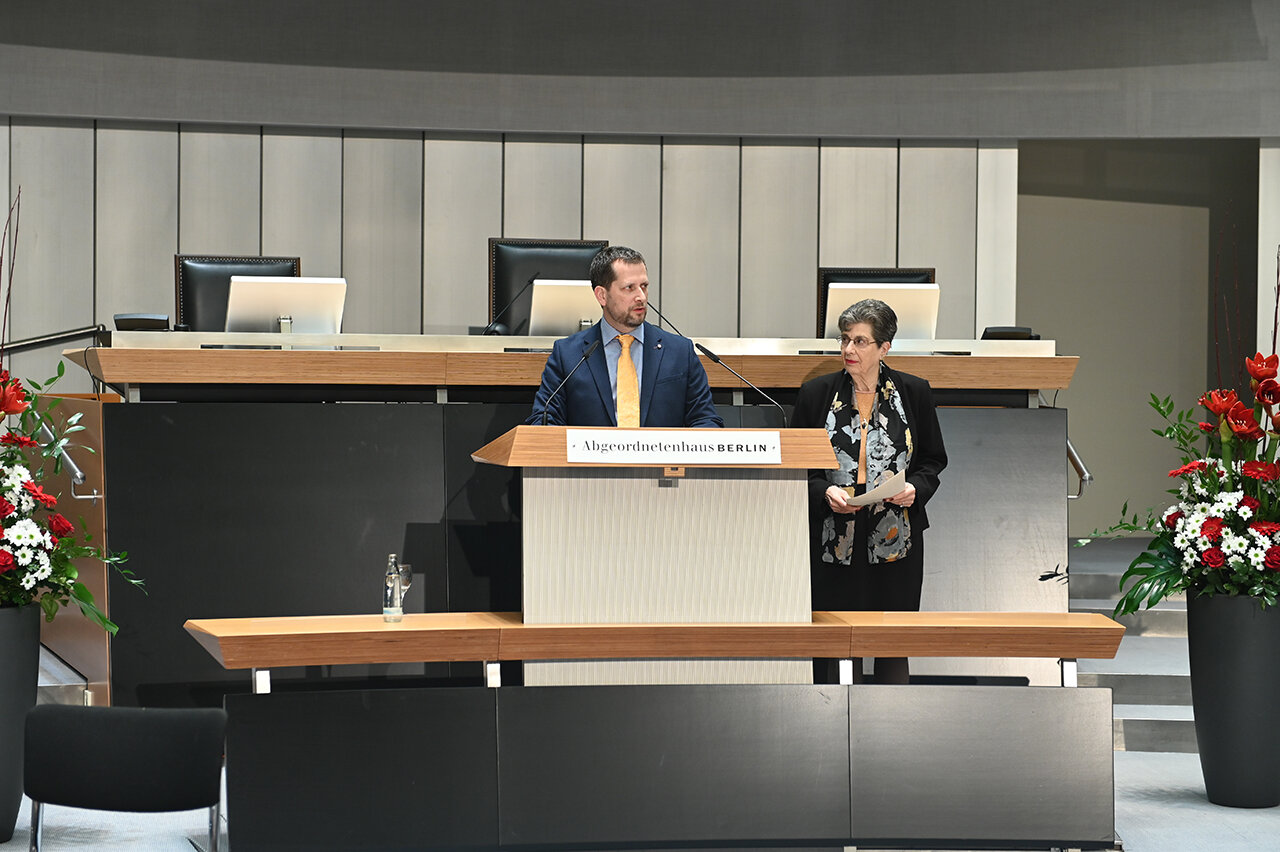
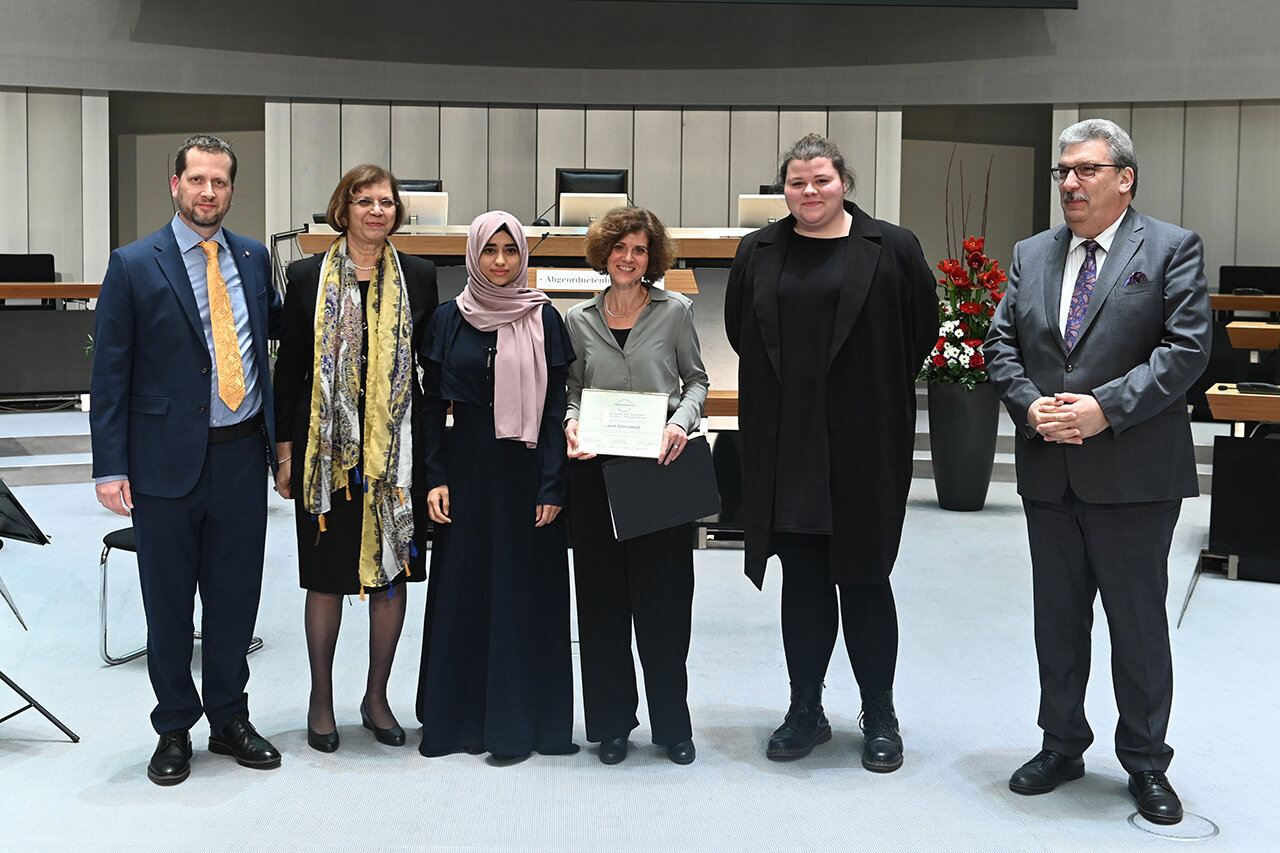
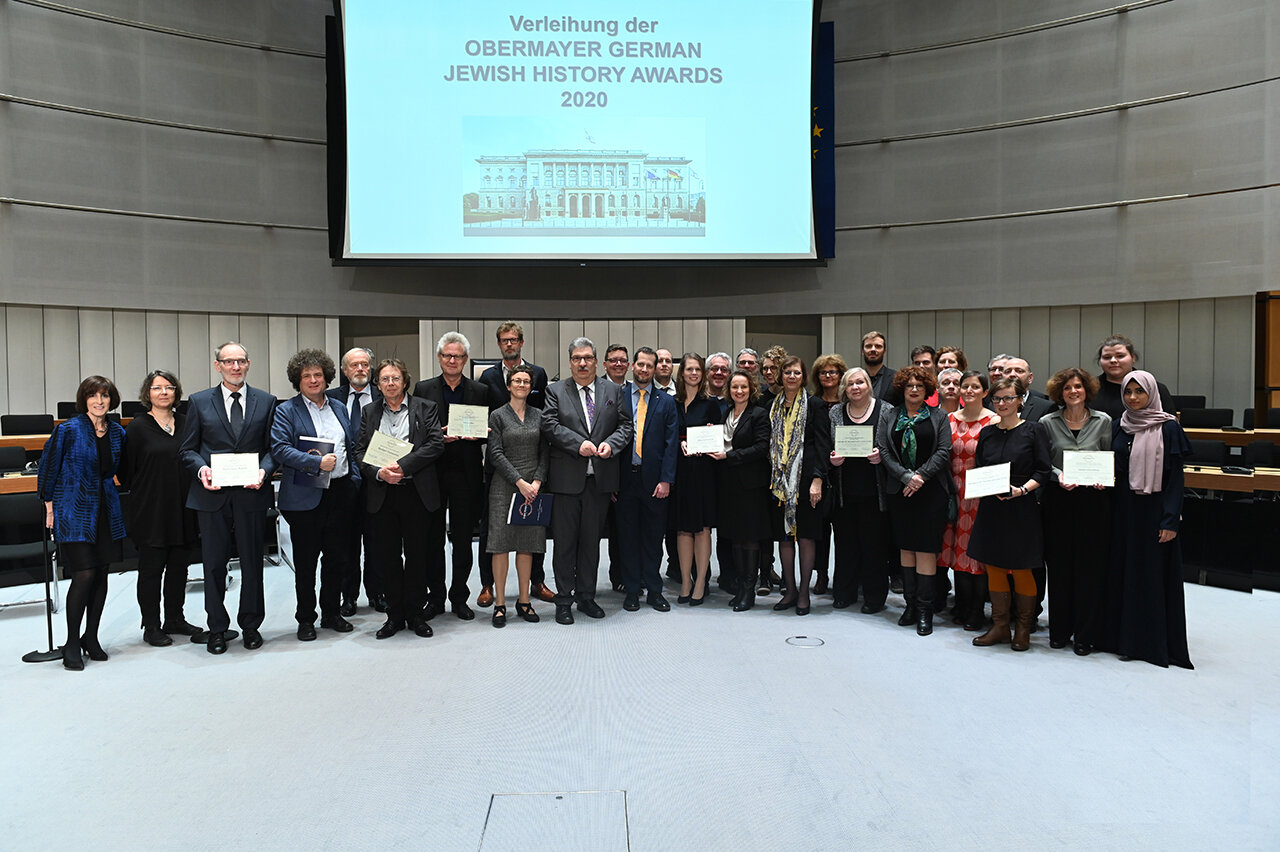
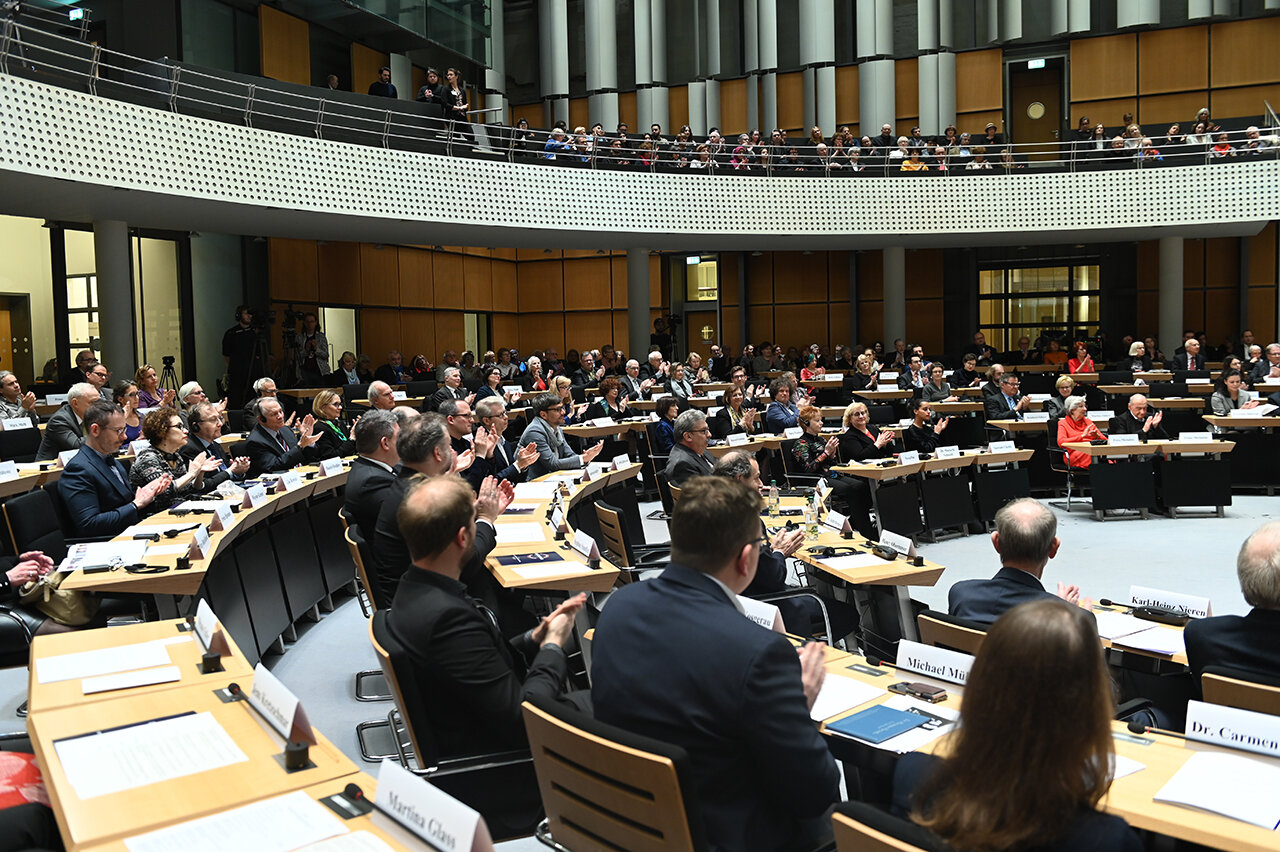
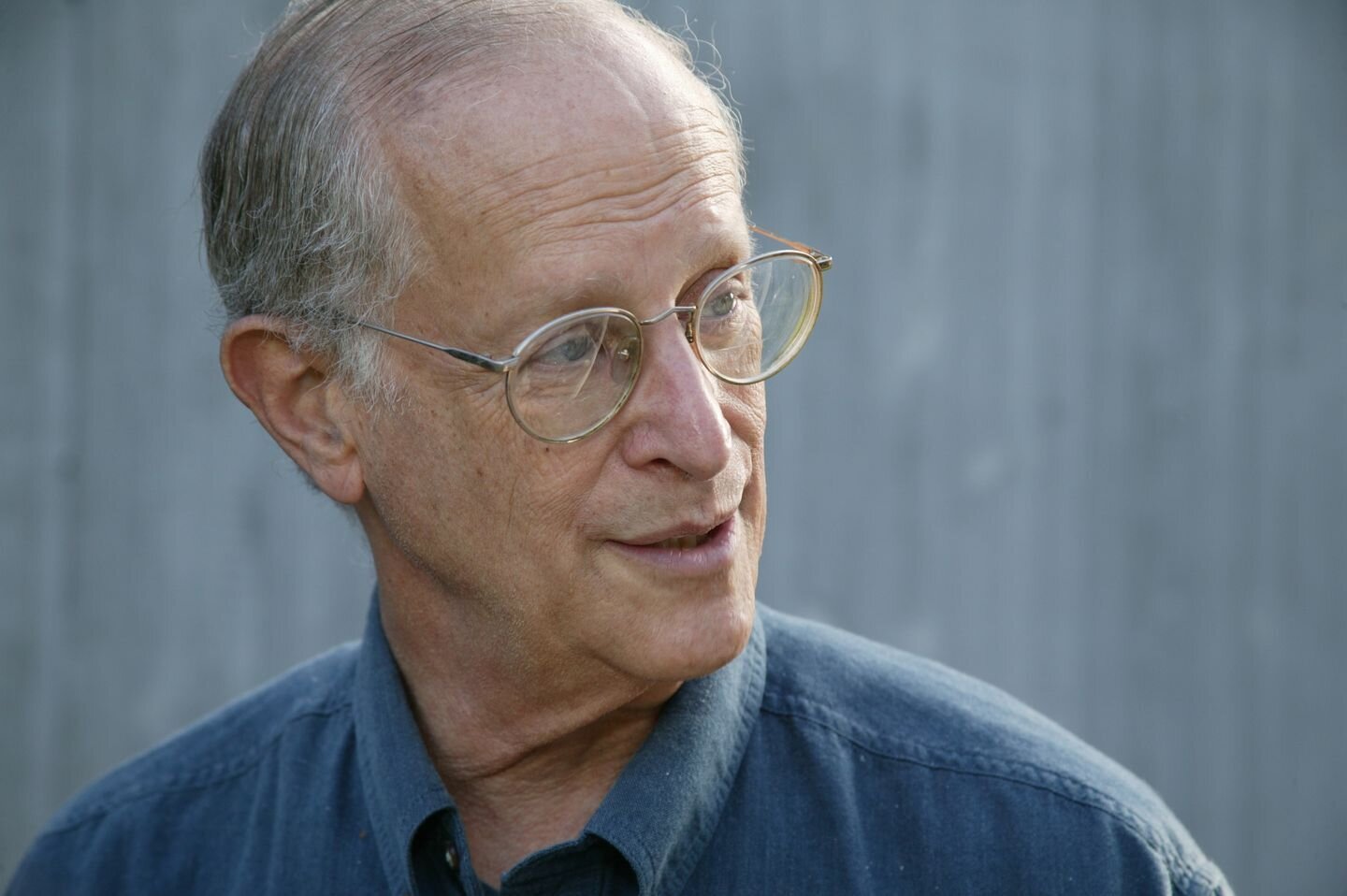
German life was once filled with contributions made by Jewish scholars, scientists, writers, and artists working in collaboration with other Germans. Musical, scientific, literary, and architectural efforts often brought together diverse talents. The Nazi regime and its obliteration of the German-Jewish community ended a long period of collaboration and mutual trust.
German schoolchildren generally learn about the Holocaust and about Jews as victims. They don’t necessarily get a sense of how German Jews until that time functioned as integral members of society. Dr. Arthur S. Obermayer and his wife, Dr. Judith Obermayer, created the Obermayer Awards to shine a light on the many people working to change that perception.
When the Obermayers traveled to Germany in 1997 to research his family genealogy, they were astonished at what they found. “In every community [we] visited, we found marvelous, caring individuals who had devoted significant parts of their lives to uncovering and preserving their local Jewish history,” Arthur Obermayer explained. The individuals doing this work were not Jews; they were simply people interested in an important part of their community’s history and culture.
Arthur Obermayer received the German Cross of Merit in 2007, the highest honor the German government can bestow on someone who is not a German citizen. During his speech he talked about what they encountered during that first trip.
“In one small community,” he recalled, “I was given a diskette with the names and complete information about over 90 of my relatives who lived there in the 19th century, and [I] was shown their houses. In another, I was given a 200-page book on the history of the Jews of that village….
“In the city of Fürth, I visited the old Jewish cemetery where my ancestors were buried, which had been severely desecrated during the Nazi era. I was guided there by the woman who had completely reconstructed it through years of painstaking work. She also prepared a comprehensive book memorializing the Holocaust victims from Fürth using stories from friends and relatives and archival information.
“In the city of Augsburg I was given a copy of the marriage contract of my great grandparents and was shown the houses where they and their parents had lived over 200 years ago.
“Later, in the town of Creglingen, I was able to identify where my ancestors lived 11 generations ago—that is almost 400 years ago—as a result of a resident searching through tax records, property transfers, and wills. With the help of the community, the house at that location is now a Jewish museum.”
The Obermayers, after discussing their trip with other Jews who had traveled to Germany, realized their experience was not unique. In fact, there were—and still are—individuals and organizations in communities across Germany working creatively and selflessly to raise awareness of that once-vibrant German Jewish culture. They have dedicated countless volunteer hours to restoring cemeteries, renovating synagogues, developing educational programs, staging exhibitions, creating websites and publications, and reintroducing music that had been forgotten. In most cases they work separately and focus on their own individual communities. But in whole their work advances the cause of intergenerational and intercultural healing.
Many have forged meaningful relationships with former residents and descendants of those who once lived in their communities. This outreach to descendants has proven to be a powerful form of reconciliation. Something that is so difficult to achieve in a broad way has been achieved over and over again by Obermayer Award recipients on a local and personal level. They have built bridges around the world while also making it possible to teach the lessons of history to new generations.
A portrait of Arthur Obermayer painted by German artist Marlis Glaser, a 2015 Obermayer Award recipient.
Arthur Obermayer, an American scientist, entrepreneur, activist, and philanthropist, as well as a man who loved to help and encourage others, felt this work needed to be recognized. The first Obermayer Awards were presented in 2000 at the Centrum Judaicum in Berlin, a center of Jewish life there. Since then they have been presented each year at Abgeordnetenhaus, the home of the Berlin Parliament, and cosponsored by the Berlin Parliament and the Leo Baeck Institute (New York) as part of the Parliament’s observance of National Holocaust Remembrance Day (January 27).
As Arthur Obermayer recalled in that 2007 speech, he had three objectives in creating the awards.
“The first was to honor Germans who had done such extraordinary work on a volunteer basis to preserve the Jewish history and heritage of their own local communities. My second objective was to have their good works recognized by their families, their communities, and their country. My third objective was to demonstrate to Jews throughout the world that Germany today is very, very different from the Germany of Hitler’s era. It is high time that we no longer hold a prejudice against the current Germans and appreciate them for the values they have today. All three of my objectives have been reached, far beyond my expectations.”
When the awards first began, says Judith Obermayer, she and Arthur felt that they would run their course eventually. As the years passed, they thought, the Holocaust would feel like a more distant memory and fewer and fewer people would be doing this kind of work. In fact, that hasn’t happened, as new generations become interested in German Jewish history and culture. “We’re talking about not the generation of the Holocaust but younger people, very often a lot younger people, who did not feel like they should be guilty about what happened but who felt a responsibility to preserve the Jewish contribution to their society,” she says.
“This was never meant to be a Holocaust prize,” she adds. “We wanted to concentrate on Jews in a positive sense and the positive contribution they made to Germany.”
The rise of the right in Germany had begun before Arthur Obermayer passed away in 2016, and he was very concerned about it. Obermayer Award winners, because of their interest in German Jewish history and culture, have often been involved in fighting anti-Semitism and prejudice in all forms. Before his death, Arthur Obermayer urged his family not to be afraid to adjust to changing times and needs.
The board of directors of the Obermayer Foundation—Judith Obermayer, Hank Obermayer, Joel Obermayer, and Marjorie Raven—created Widen the Circle in 2019 with Joel Obermayer as executive director. Widen the Circle’s mission is to combat prejudice by fostering a shared understanding of the past—as Obermayer Award recipients have done for many years. In 2020 the Obermayer Awards were expanded to recognize a range of individuals and groups working at the ground-level in their communities to fight prejudice and confront the history that allowed prejudice to grow.
“Now we have a world where we have [rising] prejudice and anti-Semitism, and so it becomes even more important to use what we have learned to deal with the hate in the world today,” says Judith Obermayer.
The Obermayer Awards and Widen the Circle will continue to honor those Germans dedicated to this important work.
THIS WALL BRINGS PEOPLE TOGETHER
Students at this Berlin elementary school, built on the site of a synagogue, have been building a wall for the past two decades. It delivers a powerful message about community.
A NAZI LEGACY, A LIFE GIVING BACK
Hilde Schramm has spent her adult life fighting racism and intolerance. And she doesn’t shy from her family history as the daughter of an infamous Nazi leader.
STUDENTS REACHING STUDENTS
When a handful of ninth graders from Berlin met Rolf Joseph in 2003, they were inspired by his harrowing tales of surviving the Holocaust. So inspired that they wrote a popular book about his life. Today the Joseph Group helps students educate each other on Jewish history.





